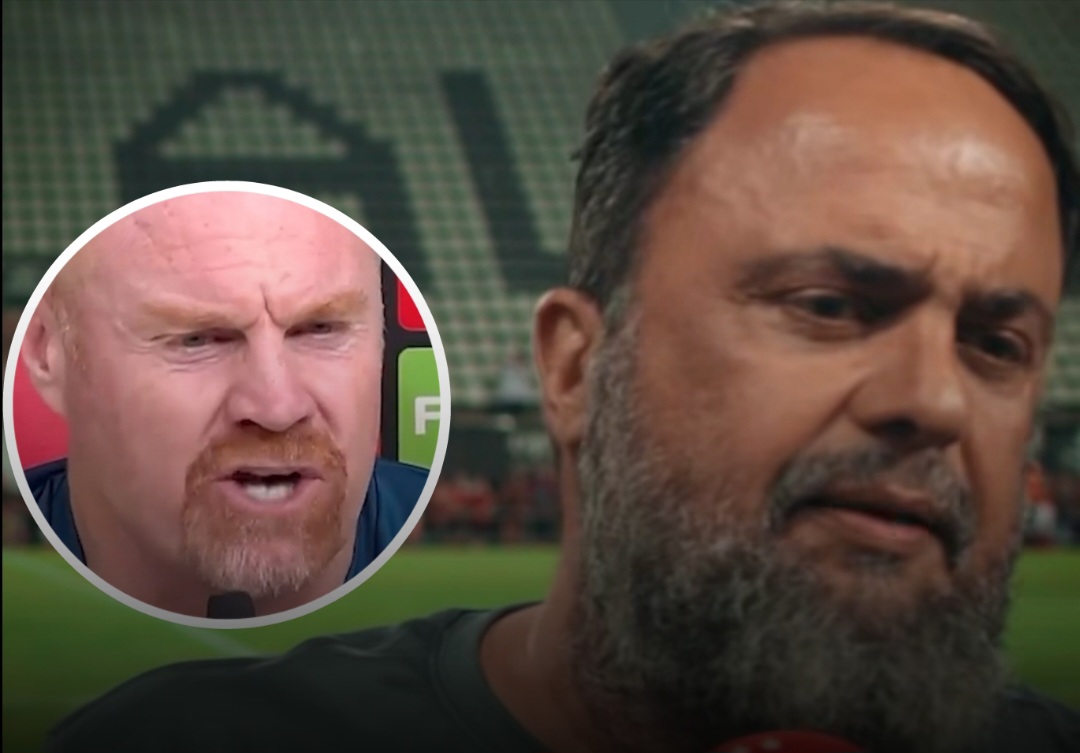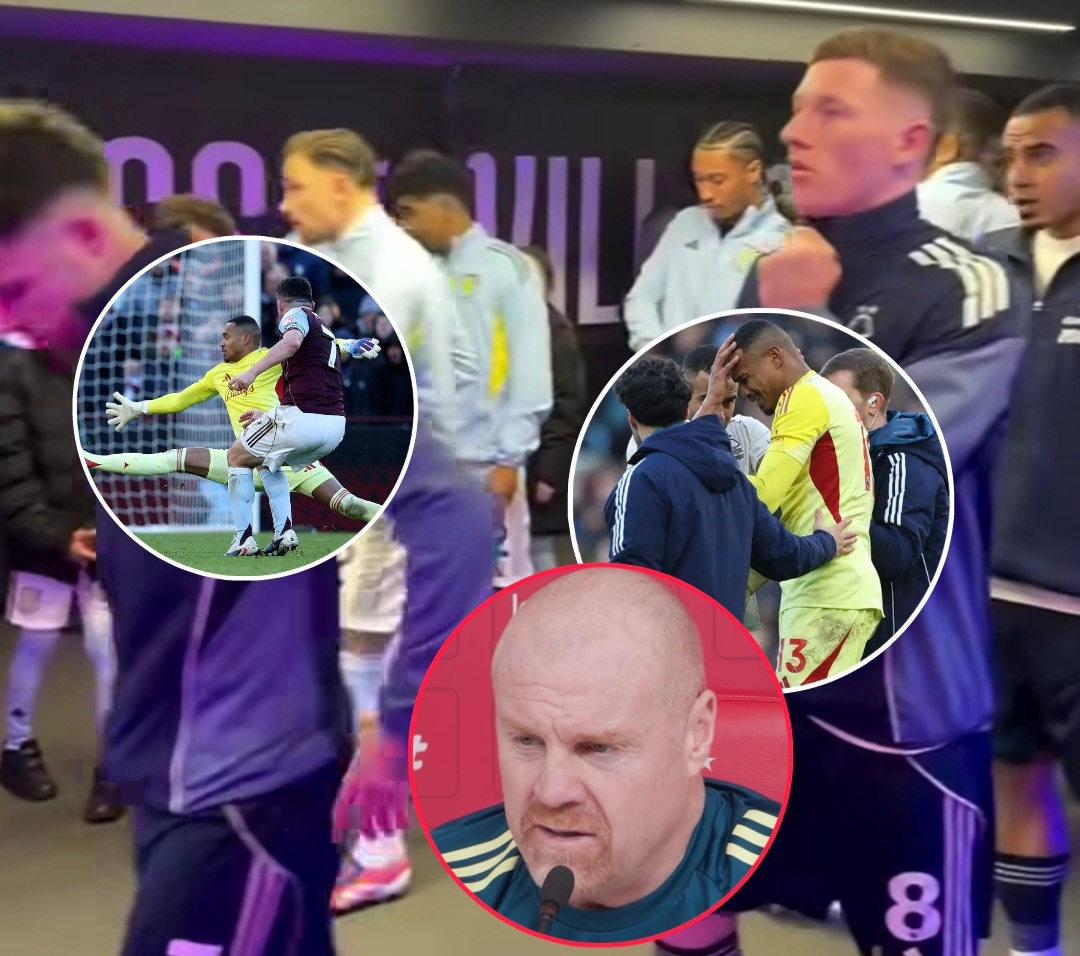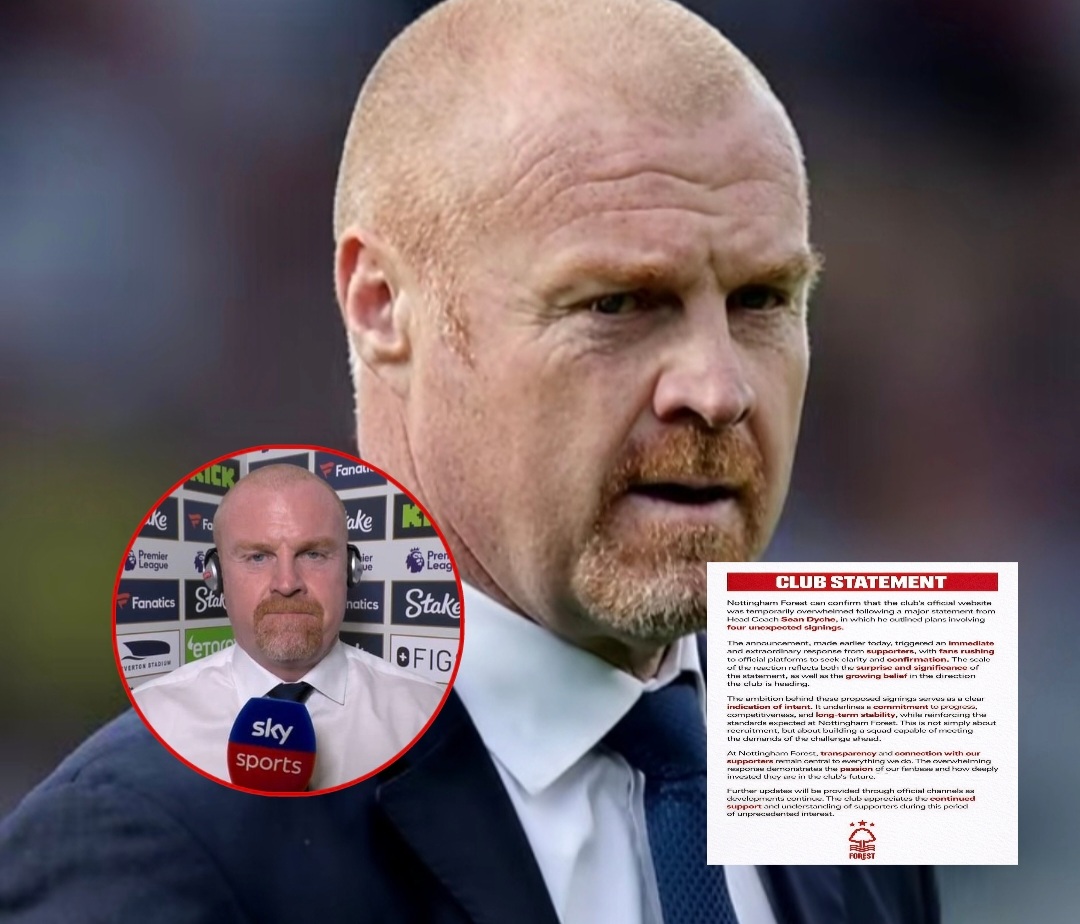INSIDER CLAIMS DYCHE BLASTED MARINAKIS’ REMARKS AS HE UNVEILS PLAN TO STOP NOTTINGHAM FOREST RELEGATION
INSIDER CLAIMS DYCHE BLASTED MARINAKIS’ REMARKS AS HE UNVEILS PLAN TO STOP NOTTINGHAM FOREST RELEGATION
From the moment Sean Dyche walked through the doors at the City Ground, it was clear: this is a rescue mission, not a makeover. The club find themselves wobbling dangerously close to the relegation battle, with turbulence in the coaching seat, players lacking clarity, and a disgruntled fanbase waiting for signs of salvation. What’s emerged in recent days is a sharper, more direct turn: Dyche has not only laid out what must change but—according to insiders—has publicly taken aim at the owner’s previous remarks and lack of stability.
Here’s everything you need to know: the tensions, the tactics, the timeline and what it could mean for Forest’s fate.
—
1. The backdrop: chaos before Dyche’s arrival
Forest’s season began with optimism built upon last year’s surprisingly strong campaign under Nuno Espírito Santo, yet things quickly unravelled. Nuno’s departure sparked the first big shift; the club then appointed Ange Postecoglou, whose tenure lasted just 39 days.
Amid that instability, Sean Dyche was recruited to steady the ship. But coming in as the third manager of the season means he inherits not just a squad in need of direction — he inherits the consequences of previous decisions, culture issues, and perhaps most importantly, a strained relationship between manager and owner that now has the potential to hamper the climb back up.
—
2. The reported friction: Dyche vs Marinakis
The fireworks are not just metaphorical. Sources close to this situation say that Sean Dyche didn’t mince words — he blasted remarks made by Evangelos Marinakis that he felt were out of touch, inconsistent or sending the wrong message to the squad. While we don’t have a verbatim transcript of every word exchanged, the undercurrents are very real:
Dyche is said to have pointed at the tone of the owner’s public comments — the ambition talk vs. the reality of the squad’s form — and insisted that talk must convert into action.
Marinakis, for his part, is known for being a highly ambitious, hands-on owner, but also one whose public commentary and managerial rhythm (several changes this season) contribute to an atmosphere of uncertainty.
One media piece reports that Dyche recalled Marinakis as being “aware of the challenge … and realistic” when Dyche arrived — but the implication is that such awareness must now be matched with behaviour.
In short: Dyche apparently told the owner, “The lip-service stops. We need clarity, consistency and accountability.” That isn’t usually how a newly-hired manager enters the scene — and it signals urgency, tension and an approach that doesn’t tolerate delay.
—
3. The blueprint: what Dyche says must change — fast
Now that the personal angle is out of the way, the more important part is what Dyche is doing on the field. He has laid down a three-pronged plan to snap Forest out of crisis:
a) Defensive foundations first.
Dyche emphasises that they have to rediscover the basics. Structure, organisation, concentration. He said:
> “The first thing is can we just stabilise the situation … The basics have always got to be in place.”
The message: if you keep conceding soft goals, you’ll be in the relegation fight rather than the survival fight.
b) Giving players freedom from a base of stability.
While the defence will be tighter, Dyche is adamant he won’t strip the players of expression. He said:
> “There’s some real talent here … our job now is to find that balance — the risk and reward of going forward to score goals and excite the crowd.”
This signals the shift: no more radical overhaul, no more wholesale identity swap. Instead, pragmatic tweaks with a view to rediscovering solidity and then building.
c) Culture reset, accountability, clarity.
Dyche has already emphasised how the players must recognise their roles: playing for each other, pushing for one cause. Given the previous managerial churn, that’s vital. One article reports:
> “There was a nice edge to [the players] in our first session … and we want to keep that going.”
That suggests Dyche is kicking off his era by demanding sharpness, focus and a clean slate — and that the owner’s comments and public image now matter because they ripple into dressing-room culture.
—
4. Why the timing is crucial — and what happens if it doesn’t work
Here’s where it gets serious. Forest aren’t just in a bad patch: they’re teetering. And when a club of this size with lofty aspirations ends up in this position, the fall is steep.
The fact that Dyche had to come in now is proof that the board and the owner believe survival is at stake.
If these changes don’t take hold swiftly, the consequences go beyond missing out on mid-table or cups: this could become a full-blown relegation scrap.
For Marinakis, whose public ambition has been high, failure would be glaring: leading his club into a fight for existence instead of pushing onward.
Dyche seems aware of that high-risk scenario. He echoed it when talking about the challenge being real, and indicated the owner knew it too.
In effect: the clock is ticking. Every point matters now. Every recruitment decision, every training session and every public comment will either build momentum — or undermine it.
—
5. The wildcards: what could derail this?
Plenty of variables could still trip up this plan:
Owner messaging vs reality. If Marinakis makes ambitious statements (trophies, top-six) but the squad doesn’t reflect that, Dyche will either be undermined or will refuse to tow the line — creating public-private conflict.
Squad buy-in. The players have been through multiple systems this season. If commitment and clarity aren’t instant, the margin for survival shrinks fast.
Transfer window and squad resources. Sources suggest Dyche will have to make do with what he has rather than expect a shopping spree. If reinforcements are needed and don’t arrive, the plan gets harder.
Fan pressure & atmosphere. Forest fans are loyal but restless. They can bolster an underdog squad — or create a hostile environment if they perceive failure.
Injury/fixture congestion. With a European tie also in the mix (against FC Porto), Dyche must balance survival mode in the Premier League with the potential upside of progress abroad. That’s tricky.
—
6. What success looks like — and why fans should still hope
It isn’t all doom. Dyche’s arrival offers a reason for guarded optimism:
He knows the club: he was a youth player with Forest. That gives him emotional buy-in that purely external hires often lack.
His historical strength: Dyche has a track record of building solid defences, pulling teams back from the brink. Forest need exactly that now.
Clear communication: He’s not hiding the difficulty. He’s stating reality — and that can galvanise change.
Short-term focus: By focusing on stabilising rather than immediately reinventing, he gives the squad a chance to breathe, regroup and gain confidence.
If things go his way, success in this context means:
More clean sheets, fewer soft goals.
Modest yet meaningful wins or draws against rivals, generating momentum.
The club pulling clear of the relegation dogfight by Christmas — not to contend for trophies, but to ensure the Premier League survival becomes secure.
A clearer direction for recruitment and identity ahead of next season.
—
7. The headline moment — the public blast that set the tone
While the exact quotes of the “blast” haven’t been leaked in full, media reports say Dyche effectively challenged the owner’s earlier public tone, making it clear: “We’re not doing fluff and lip-service. We’re doing work.” One piece noted he had “blasted Marinakis’ remarks” relating to ambition vs execution and insisted on aligning everything behind the effort.
This kind of public-private gap closing is bold — especially considering Marinakis’ stature and the club’s recent instability. It tells you Dyche is here to command, not to be managed.
—
8. The fan verdict: peril and promise
For supporters of Forest, this season now feels like a bridge between two worlds: the high of last season’s unexpected surge; the low of current turbulence. It’s a moment of truth.
If the collective – owner, manager, players, club – align behind Dyche’s plan, the worst can be averted and a base laid for next season’s rebuild. If not? This could become one of those seasons fans look back on with regret — where points slipped away, messaging faltered and ambition stalled.
—
Conclusion: switching from hope to hard work
In summary: Sean Dyche’s arrival at Nottingham Forest is being framed as a rescue mission. The most dramatic subplot? His clash of expectations with Evangelos Marinakis — both in tone and in action. The message from Dyche: talk is cheap, details matter, and survival starts with implementing structure, clarity and accountability.
Forest find themselves at a crossroads. The stylised ambitions of recent years suddenly feel fragile. Dyche isn’t offering glamour, he’s offering a blueprint. He’s saying: “We’ll worry about trophies later. Right now, we survive. We rebuild. We rediscover ourselves.”
If that resonates, this season might yet be salvaged. If the bones of the plan crack, this could spiral into the very thing the fans fear most.








Post Comment